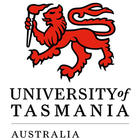Associate Degree in Arts – Ancient Languages
Associate Degree in Arts – Ancient Languages
The Associate Degree in Arts is a two-year course, full time (or part-time equivalent), that provides you with opportunities to interpret human culture and behaviour from different perspectives and periods, to explore today’s big questions and learn how to support the social and economic development of humanity, and/or to be…
Categories
COURSE DESCRIPTION
The Associate Degree in Arts is a two-year course, full time (or part-time equivalent), that provides you with opportunities to interpret human culture and behaviour from different perspectives and periods, to explore today’s big questions and learn how to support the social and economic development of humanity, and/or to be immersed in creativity, performance and innovation.
The award is designed to allow you to choose your path: it can be the first two-years of your Bachelor of Arts study, or you may like to enrol in this degree to pursue your passion and undertake two of the majors in the BA, or to extend your curiosity and try units from a number of disciplines.
The Associate Degree in Arts gives you the flexibility to choose from subjects to build your knowledge and diversify your skills from a wide range of over twenty possible majors and minors in the Bachelor of Arts as well as many individual elective study options.
Learning Outcomes:
Analyse perspectives and evaluate both broad general and technical knowledge from disciplines in the Bachelor of Arts to identify and reflect on social, cultural, political, ethical or environmental issues in local, cross-cultural and/or global contexts and their impacts;
Communicate independently, by written, oral and technology supported modes, to provide clear coherent expositions to specialist and non-specialist audiences; Apply knowledge, analytical and technical skills as a basis for decision-making and planning and
Apply disciplinary knowledge and skills with flexibility to demonstrate initiative, resilience, accountability, and social responsibility; whether working independently or in collaboration with others.
Course structure
The Associate Degree in Arts requires the completion of 200 credit points comprising:
200 credit points of Discipline Elective units or;
A 100 credit point major and 100 credit points of Discipline Electives.
Majors: Ancient Languages – When you study Latin and Greek, you will find an exciting new home in the languages that shaped the fundamentals of western thought in the sciences, philosophy, medicine, and literature. Beautiful and fascinating in their own right, these ancient languages provide you with a deeper understanding of modern culture, specialist technical terminologies and many modern languages through their roots in Latin and Greek. Each week you will experience the intense satisfaction of building your brain into a stronger, better, more agile resource. Understanding the precious cultural resources bound up in even ‘dead’ languages also exposes you to the politics of vulnerable Indigenous languages, such as the returned and reconstructed island language of Tasmania, palawa kani.
This is a unique course recognised as the most dynamic (and best off-campus) ancient languages course in Australasia. Our introductory units begin with Latin and are designed for students with no experience in ancient or modern languages. These units pay attention to fundamental principles of grammar, informing general understanding of language structure, and guide students through skillfully adapted texts allowing direct access to ancient thought. Our intermediate units continue to develop grammatical skills while gradually incorporating original texts. At advanced level you will read ancient texts in their original language, and begin Ancient Greek in accelerated form. The Ancient Languages Major integrates closely with Ancient Civilisations and connects with several majors in the Humanities, Social Sciences and Legal Studies. Learning Ancient Greek and Latin and reading their centuries of literature are among the great intellectual adventures, and employers recognise the analytical and creative skills such training develops.
Available: On campus Hobart and online.
REQUIREMENTS
Admission to undergraduate courses at the University of Tasmania requires the completion of qualifications equivalent to a 12th year of education in Australia.
Most of our undergraduate programs have the following English language requirements.
IELTS (Academic) – 6.0 (no individual band less than 5.5)
TOEFL (iBT) 72 (no skill below: Reading 10; Listening 9; Speaking 16; Writing 19)
PTE Academic 50 with no score lower than 42
UTAS Access-English Level 6 – 60% (no individual score less than 55%)
Cambridge CAE (Certificate of Advanced English) – B Grade
Cambridge CPE (Certificate of Proficiency in English) – C Grade
Cambridge BEC (Business English Certificate) Higher – C Grade
EDUCATIONAL INSTITUTION
The University of Tasmania was officially founded on 1st January 1890 and is located at Sandy Bay, Tasmania. In addition to the main campus at Sandy Bay, it also operates out of the Newnham Campus and the Cradle Coast Campus. The most popular courses offered are the environmental studies that include wilderness management, marine sciences and indigenous studies in Tasmanian literature. Other unconventional courses include agriculture development, studies on the community and population and ocean study programs. The university also comprises of a Music Conservatorium, Art school and a School of Clinical studies.




